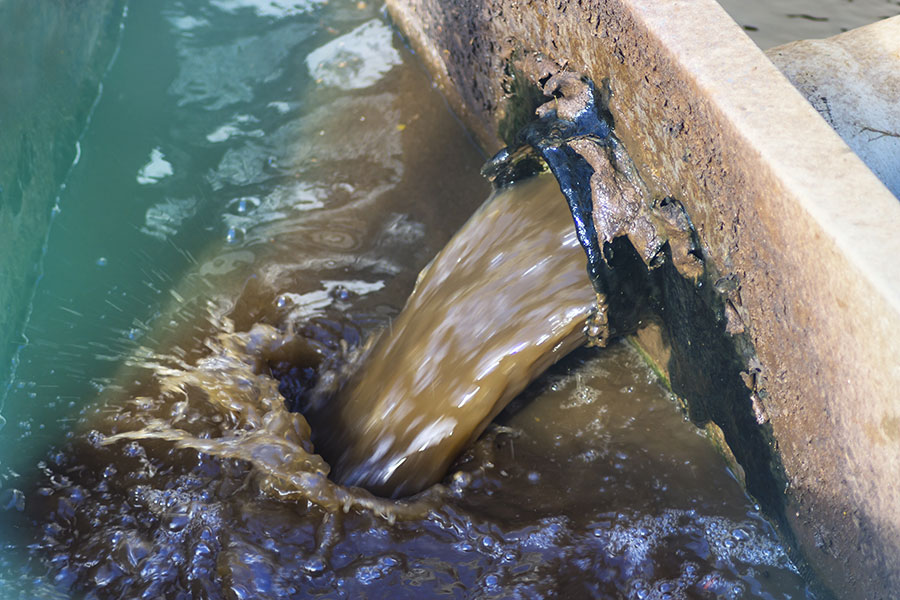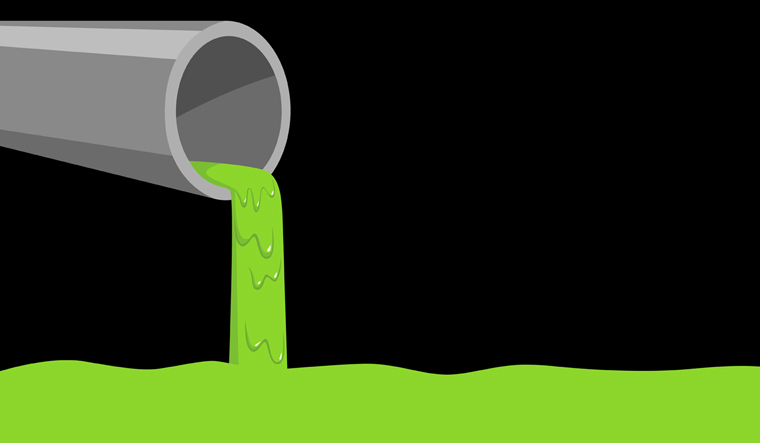Comprehending the Comprehensive Refine of Fluid Garbage Disposal: Finest Practices and Environmental Effect Considerations
The monitoring of fluid waste disposal is a multifaceted concern that requires a comprehensive understanding of numerous ideal techniques and their associated environmental influences. From the kinds of liquid waste produced to the techniques utilized for collection, treatment, and final disposal, each action plays a crucial duty in safeguarding environments and public health and wellness.
Kinds Of Liquid Waste
Recognizing the various types of liquid waste is important for reliable administration and disposal methods. Fluid waste can be broadly categorized right into a number of kinds, each needing one-of-a-kind handling and treatment strategies.
Industrial fluid waste frequently includes hazardous materials, consisting of hefty metals, solvents, and chemicals, generated during producing procedures. These wastes require rigorous regulatory conformity to shield human health and wellness and the environment. Domestic fluid waste mostly refers to wastewater generated from homes, including sewage and greywater, which, although much less harmful, can still posture significant risks if poorly handled.
Agricultural fluid waste, including overflow from farms, usually contains fertilizers and pesticides that can result in ecological deterioration otherwise dealt with sufficiently. Medical liquid waste, generated from healthcare facilities, includes infected fluids such as bodily fluids and chemicals, needing specialized disposal methods to avoid infection and environmental contamination.
Finally, oil and oil waste, normally created by restaurants and automobile sectors, can trigger extreme clogs in sewage system systems if not handled appropriately. Comprehending these categories helps with targeted strategies for therapy, compliance with laws, and reliable disposal techniques, eventually advertising environmental sustainability and public health safety.

Collection Approaches
Reliable collection techniques are vital for the correct management of fluid waste, making certain that it is gathered safely and successfully before therapy or disposal. Different techniques are used depending upon the kind of fluid waste generated, the quantity, and the details features of the waste.
One common approach is the use of devoted collection containers or sumps, which are created to catch liquid waste at the resource. These systems frequently integrate pumps that facilitate the transfer of waste to bigger storage containers or treatment centers. Additionally, mobile collection systems geared up with vacuum cleaner innovation are used in situations where waste is generated periodically or in hard-to-reach places.
For industrial settings, closed-loop systems can successfully minimize spills and leaks, permitting the recuperation and reuse of liquid waste. It is also necessary to train personnel on appropriate collection protocols to minimize risks linked with hazardous compounds.
Moreover, implementing routine upkeep schedules for collection tools guarantees optimal efficiency and safety. The combination of sophisticated surveillance systems can enhance collection efficiency by supplying real-time data on waste levels and potential risks. Overall, reliable collection techniques are fundamental to sustainable fluid waste administration methods.
Therapy Processes
Therapy procedures play a vital function in the monitoring of fluid waste, transforming possibly hazardous products right into safe effluents or reusable resources - liquid waste disposal. These processes can be generally categorized into physical, chemical, and biological methods, each tailored to deal with details contaminants present in the waste stream
Physical therapy methods, such as sedimentation and filtration, job by getting rid of put on hold solids and particle matter. These strategies are frequently the initial step in the therapy chain, efficiently decreasing the load on subsequent procedures. Chemical treatments involve using reagents to counteract hazardous compounds, speed up heavy steels, or oxidize organic pollutants, therefore improving the safety and security of the effluent.
Biological therapy processes, including triggered sludge systems and anaerobic digestion, capitalize on the natural abilities of microorganisms to weaken raw material. These approaches are especially effective for wastewater having eco-friendly contaminants. Advanced therapy technologies, such as membrane layer filtering and advanced oxidation procedures, are increasingly employed to achieve higher degrees of purification.
Including a mix of these treatment methods not only guarantees conformity with regulatory criteria but likewise promotes environmental sustainability by recouping useful resources from liquid waste.
Disposal Options
How can companies ensure the risk-free and responsible disposal of fluid waste? Efficient disposal choices are important for protecting public health and wellness and the setting. The primary approaches include land incineration, a fantastic read disposal, and treatment adhered to by discharge right into community wastewater systems.
Land disposal includes the cautious containment of liquid waste in designated land fills, guaranteeing that it does not leach into surrounding dirt or water. Incineration, on the various other hand, subjects fluid waste to heats, transforming it right into ash and gases, which call for proper purification to minimize discharges. This technique appropriates for hazardous wastes that can not be treated with standard methods.
In cases where liquid waste can be treated, organizations may opt for organic or chemical therapy processes to counteract harmful elements prior to discharging the dealt with effluent right into community systems. This route generally aligns with governing requirements, ensuring that the effluent fulfills safety and security requirements.
Inevitably, companies should perform comprehensive analyses of each disposal choice to determine its viability, look at more info considering aspects such as waste structure, governing conformity, and prospective threats to health and the setting. By selecting appropriate disposal methods, services can contribute to an accountable waste management method.
Ecological Impact
The environmental influence of liquid waste disposal is a critical consideration for companies looking for to minimize their ecological footprint. Improper disposal techniques can bring about significant contamination of water resources, soil destruction, and adverse results on local ecosystems. For circumstances, hazardous liquids can seep into groundwater, posing risks to drinking water products and marine life. Additionally, the discharge of without treatment or inadequately dealt with waste into surface waters can cause eutrophication, causing oxygen deficiency and the subsequent fatality of fish and various other organisms.

To mitigate these effects, organizations have to take on best methods such as applying extensive waste treatment procedures, promoting recycling and reuse, and adhering to governing standards. By taking an aggressive method to fluid waste administration, entities can significantly decrease their environmental footprint while sustaining sustainable advancement objectives. Inevitably, a comprehensive understanding of the environmental impacts related to fluid waste disposal is necessary for informed decision-making and responsible stewardship of all-natural sources.
Final Thought
Reliable management of fluid waste is important for safeguarding environmental integrity and public health. Eventually, a thorough understanding of fluid waste disposal not only minimizes ecological influences but also fosters a commitment to liable source management and environmental stewardship.
The administration of liquid waste disposal is a diverse problem that requires an extensive understanding of numerous ideal methods and their connected environmental effects. From the kinds of liquid waste generated to the approaches used for collection, treatment, and final disposal, each Homepage step plays an important duty in guarding ecosystems and public wellness.The ecological impact of fluid waste disposal is a critical consideration for organizations looking for to reduce their eco-friendly impact. Ultimately, a comprehensive understanding of the environmental effects linked with liquid waste disposal is vital for educated decision-making and accountable stewardship of natural sources.
Inevitably, an extensive understanding of liquid waste disposal not only reduces ecological influences however likewise cultivates a dedication to liable resource monitoring and ecological stewardship.